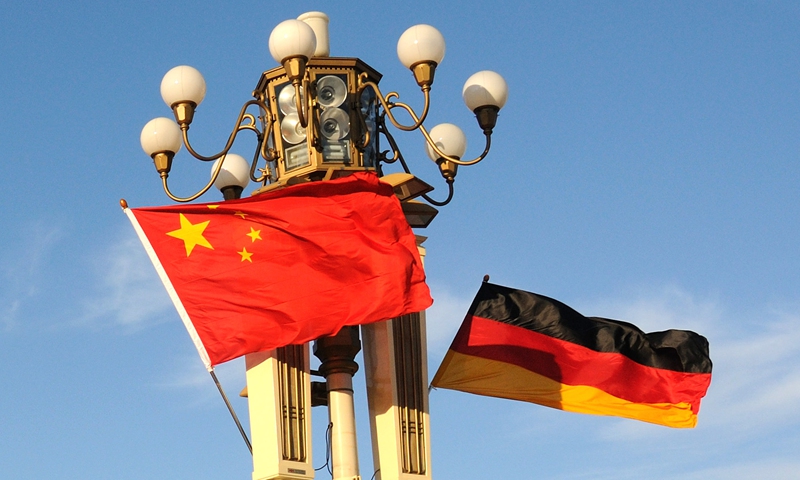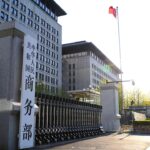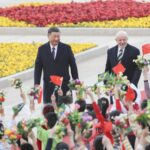German Foreign Minister Annalena Baerbock paid a visit to China from Thursday to Saturday. This is the first official visit to China by Baerbock, who is widely seen as a hardliner on China. She first went to Tianjin to visit German companies, then took the high-speed train to Beijing with Chinese State Councilor and Foreign Minister Qin Gang. The two jointly held the sixth round of China-Germany strategic dialogue on diplomacy and security, and had comprehensive and in-depth communication on China-Germany relations, China-EU relations, and international and regional hotspot issues. The outside world is paying attention to what message Baerbock will bring back to Germany and Europe.
There are three major backgrounds of this visit that the public is paying particular attention to. First, European politicians have begun a “wave of visits” to China. The upcoming ones include those from political leaders who advocate strengthening cooperation with China and enhancing European strategic autonomy, and those who are more “pro-US” and take a tougher stance on China. This shows that Europe as a whole is more willing and eager to communicate and have exchanges with China. The second is that Germany is about to issue a new strategic document toward China, and the one who formulates it is the German Foreign Ministry under Baerbock’s leadership. The outside world is highly interested in how this visit will affect the document and what stance Germany will take in dealing with China. Third, French President Emmanuel Macron has repeatedly stated after his visit to China that Europe must strengthen its strategic autonomy and should not become a “vassal.” These remarks have caused shock in Europe and the US, and in fact opened up a major foreign policy debate among European political elites.
In this context, some voices of American and Western public opinion, especially the former, very much hope that Baerbock will show toughness during her visit to China so as to “offset” the “negative impact” of Macron’s visit.
But the scene they were expecting did not materialize. While she took into account the feelings of Western public opinion, she more often emphasized the importance of Germany-China cooperation. For example, she said China is Germany’s most important trade partner, and she does not agree with decoupling with China, and expected close cooperation with China on global issues. When meeting with Chinese Vice President Han Zheng, Baerbock said that Germany is willing to enhance cooperation with China in various fields and strengthen people-to-people exchanges to bring bilateral ties to a new level. When visiting German companies in Tianjin, Baerbock also expressed her willingness to promote the cooperation between the two sides and expand it to a wider field. Some German media said that some of Baerbock’s statements “appear to have backed French President Macron’s stance.”
In fact, regardless of whether Baerbock had come to China or not and whatever she says, self-reflection and adjustment within Europe will take place. European political elites including Baerbock, regardless of their values and personal preferences, cannot be too “unrestrained” in real world politics, as national interests are the guiding thread. Ultimately, this is Europe’s own business, a swing that inevitably occurs after it enters an extreme in thought or emotion.
China’s attitude of close dialogue, proper handling of differences, deepening cooperation, and working together with Europe remains consistent. We believe that the Europeans can make a wise choice on whether to cooperate with China, promote peace and development together, or to choose division and confrontation, exacerbating its own crisis and bringing greater troubles to the world.
Communication is always better than isolation, and dialogue is always superior to confrontation. Some political leaders held deep prejudices with strong ideological colors before they had close contact with China, but after more communication and contact, they changed their way of dealing with the country. This is not uncommon in Germany.
Former German Chancellor Angela Merkel is a typical example. During her tenure, the development of China-Germany relations was rapid, which not only strengthened Germany’s influence internationally but also made the EU more proactive in its relationship with the US. Former German Foreign Minister Joschka Fischer, who also came from the Green Party, had a similar experience. For Baerbock, the outside world has already noticed that her tone toward China has recently undergone subtle changes. It is hoped that what she sees and hears in China can give her a more intuitive and vivid understanding of China’s development and mutually beneficial cooperation between China and Germany.
It should be pointed out that the “China hawks” seem to be quite popular in the field of Western public opinion. However, this is not a commendatory term, but has become representative of a lack of rationality and pragmatism. Both the Chinese nation and the Deutsch nation are known for their calmness and rationality. We look forward to Baerbock’s label of “China hawk” being removed as soon as possible and to the promotion of the sustainable development of China-Germany relations with a mature and rational attitude, injecting stability and positive energy into the development of China-EU relations.
(Global Times)




